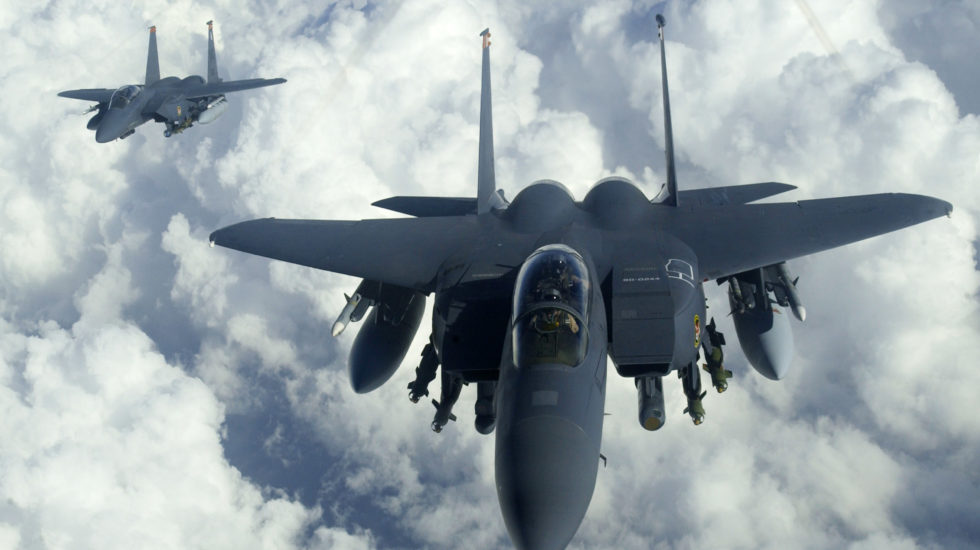U.S. military forces were scrambling to get out of northern Syria as ordered by President Trump.
Turkish-backed troops were advancing fast on the Americans’ headquarters base.
So the U.S. Air Force struck — destroying the base.
Two F-15E Strike Eagles swooped in on Wednesday to obliterate munitions dumps and military equipment at Syria’s LaFarge Cement Factory, which had served as the command center for the American campaign against the Islamic state (ISIS), reports the Wall Street Journal.
Kurdish fighters who were the front line of attack against ISIS before being abandoned by the U.S. set fire to their area of the base and fled shortly before the fighter-bombers arrived, Army Col. Myles Caggins told the Journal.
The U.S. had used both F-15s and Apache attack helicopters in an effort to stop or at least slow the attacking force, but they kept coming, so the American command ordered what it called a “pre-planned precision airstrike” to prevent them from taking the base and the armaments it held.
Even though Turkey is a member of NATO and therefore a U.S. ally, it appears that Turkish invasion forces are willing to attack Americans who impede their campaign against Kurdish-led Syrian Defense Forces (SDF) in a key strip of the Syria-Turkey border.
Last Friday, Turkish forces fired on an American position holding out in Syria; there were no casualties, but it was no mistake: a U.S. officer told the Washington Post that the Turks had known who was holding the position for months.
Having opened the gateway for the Turkish invasion of Syria by ending support for the Kurds, Trump has imposed harsh economic sanctions on Turkey, seeking to dissuade President Recep Tayyip Erdogan from continuing the campaign.
He also sent Vice President Pence at the head of a top-level U.S. delegation to Ankara in the unlikely hope of securing a cease-fire.
